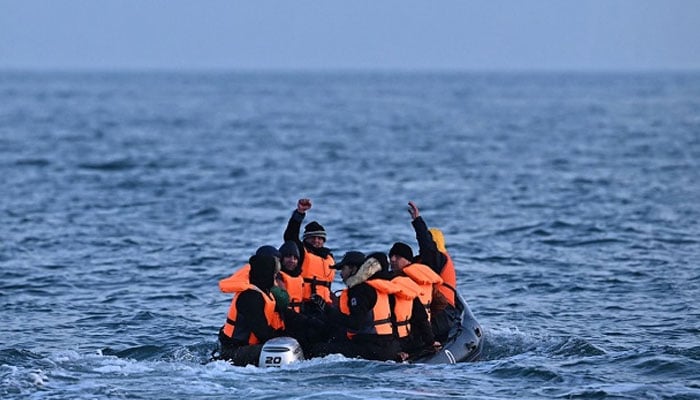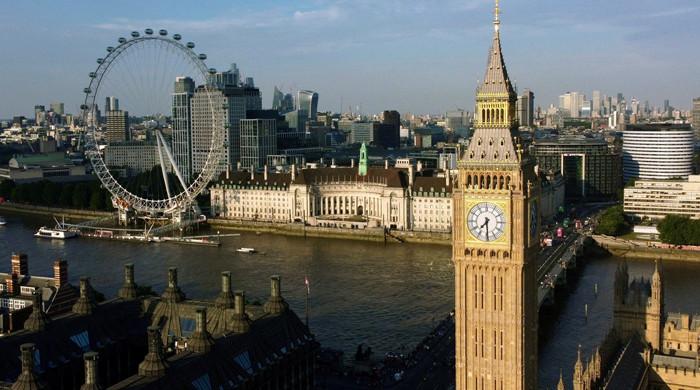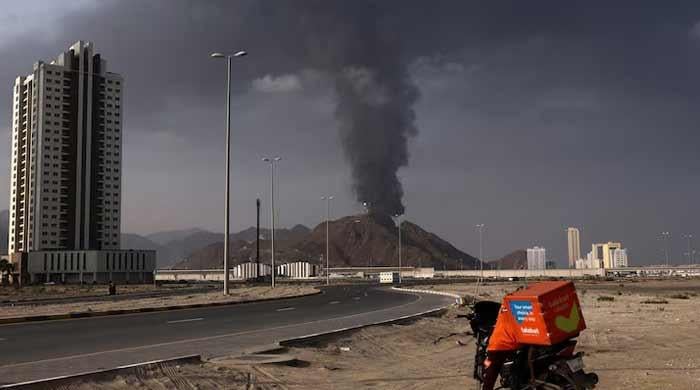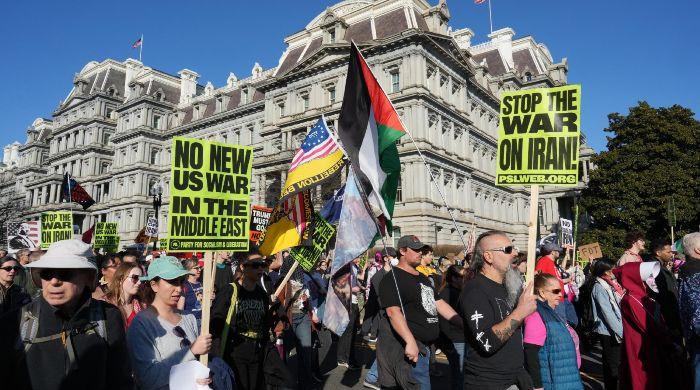Nearly 100 Sudanese refugees dead or missing after twin Libya boat disasters
Officials have so far this year intercepted, returned 17,402 migrants to Libya, including 1,516 women, 586 children
September 18, 2025

- UNHCR says one boat caught fire, the other capsized on Saturday.
- Says one boat was carrying 74 people, 'mostly Sudanese refugees'.
- Says only 13 survived, dozens remain missing from Saturday’s wreck.
TRIPOLI: Around 100 Sudanese refugees are dead or missing after two separate boat disasters off Libya’s coast last weekend, and the toll is feared to rise, UN agencies said Wednesday.
One boat capsized on Saturday and another caught fire on Sunday, both off the eastern port city of Tobruk, according to the UN refugee agency (UNHCR) and the International Organization for Migration (IOM).
The first boat was carrying 74 people, "mostly Sudanese refugees", the United Nations High Commissioner for Refugees (UNHCR) said on its X account for Libya, of whom "only 13 people survived and dozens remain missing" from Saturday’s wreck.
An IOM spokesperson earlier told AFP that Sunday’s "tragic incident took place when a rubber boat carrying 75 Sudanese refugees caught fire" en route to Greece, adding: "At least 50 lives were lost."
The UNHCR and the IOM spokesperson did not immediately provide details of the ages or gender of those on board the boats.
"IOM provided immediate lifesaving medical care to the 24 survivors," the spokesperson added, without clarifying if one last person was still missing from Sunday’s wreck.
Libya is a key transit country for thousands of migrants seeking to reach Europe by sea each year.
At least 456 people died and 420 were reported missing along the central Mediterranean route between January 1 and September 13, according to the IOM.
Libyan authorities have so far this year intercepted and returned 17,402 migrants to Libya, including 1,516 women and 586 children.
The war in neighbouring Sudan between the army and paramilitaries has pushed over 140,000 refugees into Libya in the past two years, nearly doubling the number of Sudanese refugees in the country.
Many brave near-slavery conditions in Libya, migrants have told AFP, while others attempt the dangerous sea crossing in a bid to reach Europe.
The IOM considers the central Mediterranean crossing one of the deadliest migrant routes in the world.
In 2024, 2,573 people trying to reach Europe died in the Mediterranean Sea, it said.
Libya is still plagued by division and instability after years of unrest following the NATO-backed uprising that toppled longtime leader Muammar Gaddafi in 2011.
It remains divided between the UN-recognised government in the west and its eastern rival, backed by military commander Khalifa Haftar.
Smugglers and human traffickers have taken advantage of the instability, leading to human rights violations, including extortion and slavery, according to rights groups.











